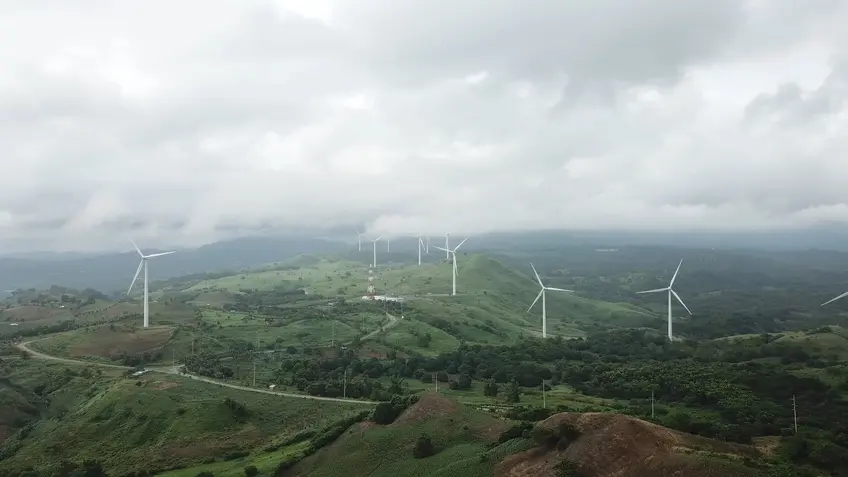The Philippines Aligns its NDC to the National Agenda and Sets About Building Investment Capacity
“Our NDC is not merely a mitigation or adaptation compendium, it is [an] investment strategy for low-carbon development."
- Secretary Emmanuel M. De Guzman. Climate Change Commission
An NDC Partnership member since 2017, the Philippines adopted a whole-of-government approach ensuring its Partnership Plan includes cross-sectoral targets and priority actions, aligning with the country's national development plan.
ALIGNING THE NDC WITH THE NATIONAL DEVELOPMENT AGENDA
The Philippines mobilized executive and policy-making government branches to identify priority sectors for its Partnership Plan and align its NDC with the national development agenda.
Government representatives from the agriculture, waste and industry, transport, forest, and energy sectors discussed the Partnership Plan to define a range of priority mitigation and adaptation actions, including:
- Delivering capacity building for mitigation and adaptation technologies and approaches;
- Establishing funding mechanisms to support roll-out and up-take of technologies, tools, and practices;
- Strengthening data for decision making through feasibility studies, vulnerability analyses, sectoral impact models, building sectoral GHG inventories and identifying sector-specific emissions factors, strengthening national climate change statistics, market analysis, and barrier analysis;
- Developing genetically improved climate-resilient varieties of crops, breeds of livestock, and strains of aquaculture species; and
- Producing operational guidelines, for example, for REDD+ implementation and for establishing a domestic carbon market.
Sectoral representatives from the Department of Environment and Natural Resources, the Department of Transportation, and the Department of Energy outlined the initial mitigation options that will be considered in the NDC during a presentation to the House of Representatives. Committee on Climate Change—a national committee legislative body with jurisdiction over policies and programs to mitigate climate change impacts. At the same time, the NDC Technical Working Group (TWG) ensures that the House Committee on Climate Change remains abreast of progress toward the NDC formulation process and progress.
For its part, the Climate Change Commission—the lead policy-making body tasked with mainstreaming climate change across government plans—presented progress towards the country’s NDC formulation to the Cabinet Cluster on Climate Change Adaptation and Mitigation and Disaster Risk Reduction (CCAM-DRR), which convenes agencies from across all government departments.
The National Economic Development Authority (NEDA), the country’s premier socioeconomic planning body, recognizes the critical role of climate change in informing the national development agenda. Through the NDC Partnership, the NEDA and the Climate Change Commission (CCC) secured funding to undertake economic modeling vis-à-vis emissions scenario-building to inform and align the NDC with the overarching planning and policy frameworks, (e.g. Philippine Development Plan and AmBisyon Natin 2040).
The modelling work ensured the NDC is consistent with the country’s long-term development targets and does not deter the country from realizing its optimum industrialization potential. These are also in line with the country’s guiding principles of ensuring social and climate justice and advancing our national interests in the context of sustainable development. The project developed the Philippines’ economy-wide model projecting the country’s long-term economic growth, which was also used to analyze trade-offs between GHG emission reduction and growth and poverty. A training module was developed to support institutionalizing the model updating process and guiding NEDA staff to continue supporting the succeeding NDC’s formulation. Training was also conducted to utilize and update the model. The modeling result was used in the recalculation of sectoral mitigation options, specifically the projected GDP increase.
In convergence with the CCC and the NDC TWG Members, the NEDA conducted a study—facilitated by the NDC Partnership—on economy-wide emission projections. The result of this study was used by the sectoral agencies to project NDC mitigation options and emission avoidance potential.
BUILDING FINANCIAL TRACKING AND INVESTMENT CAPACITY
The Philippines’ Government attached significant importance to developing skills and enabling mechanisms to budget, track, and report on climate change projects.
A climate change budget tagging system was established for national and local government agencies to register adaptation and mitigation programs and projects. The Climate Change Commission intends to set up an additional system to tag climate expenditure and delivered an initial orientation process for the Commission on Audit’s staff and auditors. The Commission is undertaking ongoing coordination with relevant economic agencies to enhance the climate change expenditure tagging framework.
The World Bank supports a deep dive technical assistance to accelerate climate investments in the Philippines. Through engaging government agencies and encompassing the agriculture, coastal resilience, energy, transport, finance, and environment sectors, the program has been designed to: enhance climate change budgeting and harmonize investment programming within the bureaucracy; mainstream adaptation across key sectors; and drive forward low-carbon development through establishing carbon-pricing instruments and supporting government engagement with the private sector.
Members supporting the Philippines: ADB; AFD; EU; FAO; Germany (through GIZ); ICLEI; ICSC; ILO; IRENA; UNDP; the World Bank; WRI; and WWF.
This is a PiA 2020 story: Browse the multimedia version or PDF version.
